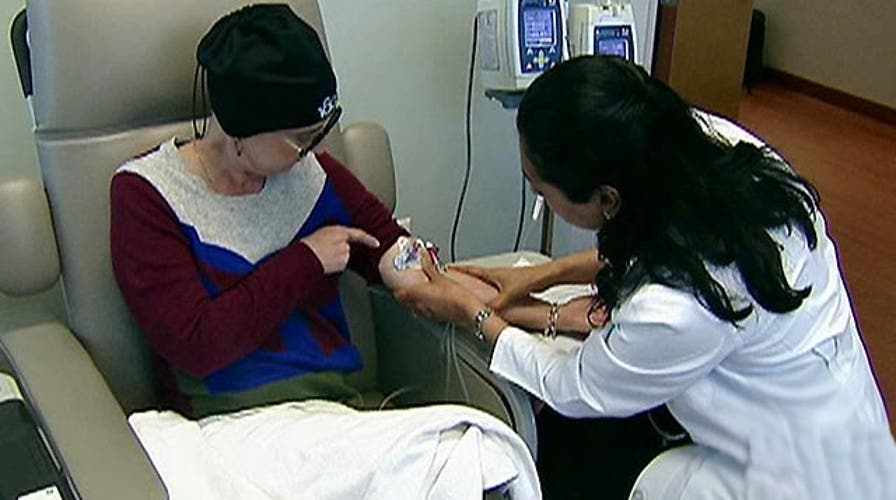While saying it’s trying to lower health costs, the Obama administration is paying hospitals far more than many community cancer centers for identical treatments.
That means patients’ co-pays are affected, along with the insurance carriers, with one expert saying data suggests those treated at hospitals are paying 10 to 20 percent more.
"They do get paid more for doing the exact same thing, says Dr. Alex Spira of a cancer clinic in Fairfax, Virginia.
"So the exact same treatments here, versus the hospital, are about 40 percent more expensive in the hospital than they are here. And that affects everybody - it's affects patients' co-pays, it affects the insurance carriers as well."
Matt Brow, of the U.S. Oncology Network says, "not only do the taxpayers and Medicare pay more when the care occurs in the hospital outpatient department setting, but the patient pays more, too. And all the data suggests that the patient pays from 10-20 percent more."
Brow also says a hospital gets paid twice as much for chemotherapy as a community cancer center.
For patients, it is a matter of both price and convenience.
Patient DeAnne Schaffer explains, "I could come here, and get my chemo within five minutes. I go to the hospital, it could be five minutes, it could be ten hours, depending on what's going on."
She adds, "I know it's health care and it's not fast food, but would you rather have five minutes or ten hours?"
Geraldine Witzig, another patient, says "I definitely would prefer to be here. In the hospital, you really are at the - you are on the schedule that the hospital staff is on. So, when they can see you, they can see you."
For patients fighting for their lives, there is also something else that draws them to community cancer treatment.
Witzig says, "you can still come and go, you can still sleep in your own bed at night, you can still see your children, and go out to dinner -- do all the things that you normally would do, which they encourage you to do."
Jay McNulty, another patient, says, "everything is very personal here. Very upbeat. It's one step for me. From the standpoint of blood tests downstairs - by the time I come upstairs, the doctor's already got them. I know the nurses by name."
There also are other factors. For example, those with compromised immune systems are more likely to pick up an infection in the hospital.
Dr. Daniel Kantor, a neurologist in Florida, says, "that's not because hospitals are bad places. That's just because you put a lot of sick people together and you're going to spread infection around."
So why would the administration pay hospitals so much more?
Kantor says, "one of the interesting quirks of health care in America is that hospitals really get paid a lot more than individual physicians, or even physician groups. It has to do partially with lobbying power, right, so hospitals are bigger corporations."
But hospitals argue their costs are greater, so they have to be paid more. A bipartisan House bill, however, would force equal payments no matter where a patient is treated.
And one insurance company, Highmark Blue Cross Blue Shield in Pennsylvania, is taking things into its own hands -- and will now pay the same amount for the same procedure, regardless of where it is performed.





